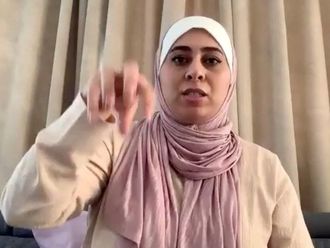Baghdad: Violence concentrated in predominantly Sunni areas of Iraq killed 35 people Tuesday, the majority of them in the Baghdad area, as the worst protracted unrest since 2008 showed no let-up.
The bloodshed comes just weeks before Iraq is due to hold its first general election since 2010, although the poll was thrown into disarray on Tuesday when the entire electoral commission resigned in protest at alleged political interference.
The surge of unrest has been driven by anger among the Sunni Arab minority, who complain of mistreatment by the Shiite-led government and security forces, as well as by the civil war in neighbouring Syria.
The deadliest of Tuesday’s violence struck in Baghdad and towns just north of the capital.
In Tarmiyah, a mainly Sunni Arab town 45km from Baghdad that is frequently hit by deadly violence, militants opened fire on an army patrol, killing eight people, including seven soldiers, security and medical officials said.
Another 14 people were wounded, 10 of them soldiers.
In confessionally mixed Taji, also north of the capital, a car bomb targeting another army patrol killed four soldiers and wounded 11 others.
In Baghdad itself, separate vehicles rigged with explosives killed 11 people.
Attacks elsewhere in the country, all in predominantly Sunni areas, killed 12 people.
Among the attacks were twin roadside bombs targeting a convoy of Sunni lawmakers near the restive city of Baquba. The MPs were unharmed, but three of their guards were killed and three more wounded.
Elsewhere in and around Baquba and the cities of Tikrit and Mosul further north, shootings and bombings killed nine people. Among them were three policemen and a woman working in the office of Prime Minister Nouri Al Maliki’s political coalition.
No group has claimed responsibility for most of the recent rise in bloodshed, but Sunni militants, including those linked to powerful jihadist group the Islamic State of Iraq and the Levant, have been widely blamed.
More than 400 people have been killed so far this month and upwards of 2,100 since the beginning of the year, according to AFP figures based on reports from security and medical sources.
Analysts and diplomats have called for the Shiite-led authorities to do more to reach out to the disaffected Sunni minority in a bid to reduce support for militancy.
But with the election looming on April 30, political leaders have been loath to be seen to compromise.












